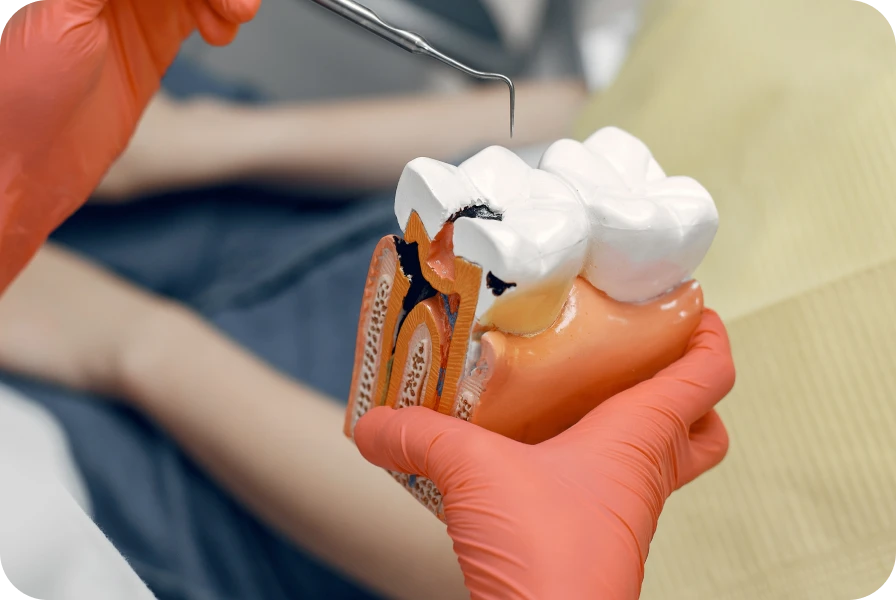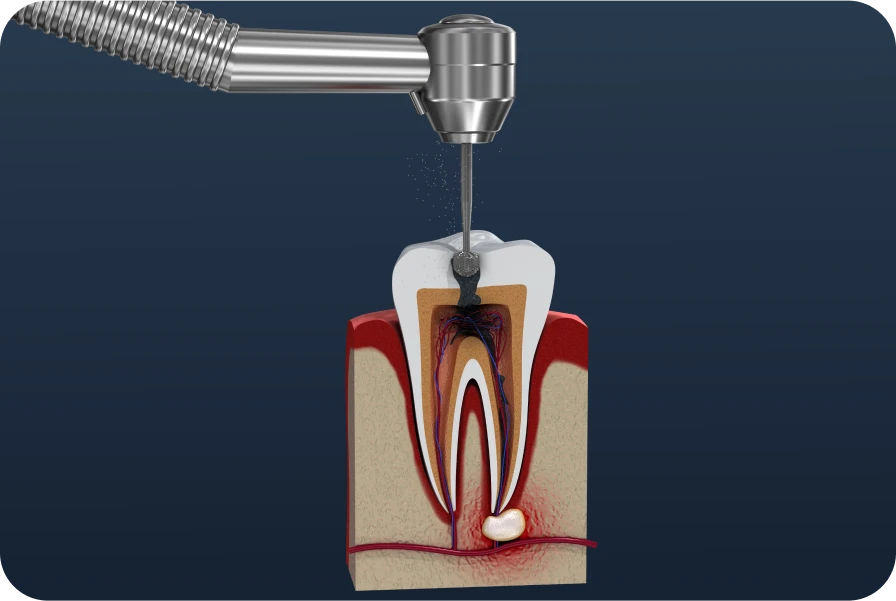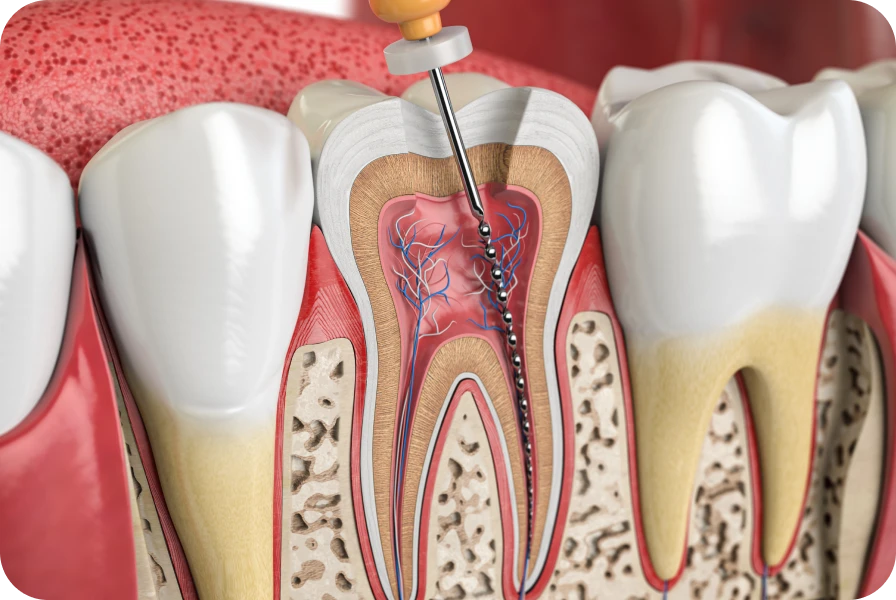Endodontics
Endodontics focuses on the internal health of the tooth. This field of dentistry aims to treat infections and inflammations of the dental pulp, the area containing nerves and blood vessels. You must take care of your dental health to avoid more serious complications. To preserve your teeth, follow these essential tips.
Identify Warning Signs

Identifying the signs of a dental infection is crucial. You must be attentive to any persistent pain, increased sensitivity to hot and cold, or swelling around the tooth. These symptoms may indicate a deeper problem. If you experience any of these signs, do not delay consulting a dentist. Acting quickly helps limit damage.
When you notice pain or discomfort, schedule an appointment without delay. Early diagnosis increases the chances of saving the tooth. The dentist will examine the tooth to determine if endodontic treatment is necessary. You must provide them with all information regarding your health status for appropriate care.
Protect the Affected Tooth
While awaiting your appointment, you must protect the affected tooth. Avoid chewing hard or sticky foods that could worsen the situation. Maintain good oral hygiene by gently brushing the affected area. The use of an antiseptic mouthwash can also help reduce inflammation. Be vigilant and limit abrupt movements.
Understand the Endodontic Treatment Process
Endodontic treatment, often referred to as root canal treatment, aims to remove the infected pulp and clean the inside of the tooth. This procedure is essential to stop the spread of infection and preserve the tooth’s structure. Understanding each step helps you better comprehend the process.
Remove the Infected Pulp
Before beginning, the dentist applies a local anesthetic to ensure your optimal comfort. You must remain calm and relaxed during the procedure. The dentist then places a dental dam to isolate the tooth and prevent any contamination. The tooth is drilled to access the pulp.
Once the tooth is opened, the dentist removes the damaged pulp using specific instruments. This step is delicate, as it is crucial not to leave any infected residue. You must remain still to facilitate the practitioner’s work. Once the pulp is removed, the root canal is thoroughly disinfected.

Fill the Root Canals
After cleaning the tooth, the dentist proceeds with filling the root canals. They use a biocompatible material to seal the space, thereby preventing any new infection. You must follow the dentist’s recommendations after this step to avoid any complications. Generally, a crown is then placed to strengthen the tooth.
Maintain Good Dental Hygiene
After endodontic treatment, it is essential to maintain impeccable oral hygiene. You must adopt healthy habits to prevent recurrence and preserve the health of your teeth.
Brush your Teeth Correctly
Brush your teeth at least twice a day with a soft-bristled toothbrush. You must reach all areas of the mouth, including treated teeth. Use a toothpaste suited to your needs and regularly change your toothbrush for optimal effectiveness.
Floss Daily
Dental floss is essential for removing food debris and plaque between teeth. You must use it daily to prevent infections. Pass it gently between each tooth to remove debris. Be careful not to irritate the gums.
Schedule Regular Check-Ups

Even after endodontic treatment, you must continue to consult your dentist regularly.
These check-ups allow for verification of your dental health and prompt intervention in case of a problem. Regular follow-up is key to avoiding long-term complications.
After treatment, you must monitor the tooth’s progress. Slight sensitivity is normal, but if you experience persistent pain or if swelling reappears, consult your dentist again. The success of the treatment largely depends on your vigilance and follow-up.
How to Prevent Recurrence?
To prevent any recurrence, it is crucial to adopt certain precautions. You must be aware of the risk factors and take measures to minimize them.
Reduce Sugar Intake
Sugar promotes the formation of cavities, which may require endodontic treatment. Therefore, you must limit your consumption of sweets and sugary drinks. Opt for healthy and balanced foods that contribute to your dental health.
Reduce Tobacco Use
Tobacco increases the risk of oral infections and can compromise the success of endodontic treatment. If you smoke, consider quitting to preserve your oral health. You must be aware of the detrimental effects of tobacco on your teeth and gums.
Wear Protective Gear During High-Risk Activities
If you participate in contact sports, it is essential to protect your teeth. You must wear a mouthguard to prevent impacts that could damage your treated teeth. Adequate protection reduces the risk of fracture or recurrence.
Understand Alternatives to Endodontic Treatment
In some cases, endodontic treatment is not possible or recommended. You must then consider other options to preserve your dental health.
Dental Extraction
When a tooth is too damaged, extraction may be necessary. You should discuss the options with your dentist to determine the best solution. Once the tooth is extracted, it can be replaced with a denture, a bridge, or an implant.
Crowns and Bridges
If extraction is performed, you must consider solutions to replace the missing tooth. Crowns and bridges are effective options for restoring the function and aesthetics of your smile. Discuss with your dentist to choose the option most suited to your needs.
Dental Implants
Implants are a durable alternative to extraction. You must evaluate with your dentist if this solution is feasible in your case. Implants offer stability comparable to that of a natural tooth and can prevent bone loss associated with tooth absence.
Maintaining Daily Oral Health
Adopting a good oral hygiene routine is essential to prevent infections and avoid endodontic treatment. You must be rigorous in your daily routine to preserve your teeth.
Adopt a Balanced Diet
Your diet plays a key role in the health of your teeth. You must prioritize foods rich in vitamins and minerals, especially calcium, to strengthen your tooth enamel. Avoid acidic foods that can weaken your teeth and promote cavities.
Hydrate Regularly
Good hydration is essential to maintain abundant saliva, which helps neutralize acids in the mouth. You must drink enough water throughout the day to support the health of your teeth. Limit sugary and acidic drinks, which can cause cavities.
Raise Awareness among your Circle
Prevention also involves information. You must educate your family and friends about the importance of oral hygiene. Share your knowledge and encourage them to adopt good practices to avoid costly and painful treatments.
By following these recommendations, you will contribute to preserving your teeth and avoiding complications related to dental infections. The key lies in impeccable hygiene, regular consultations, and constant vigilance regarding warning signs. Your dental health is in your hands: take care of it every day.
